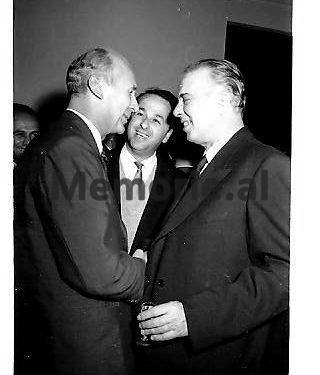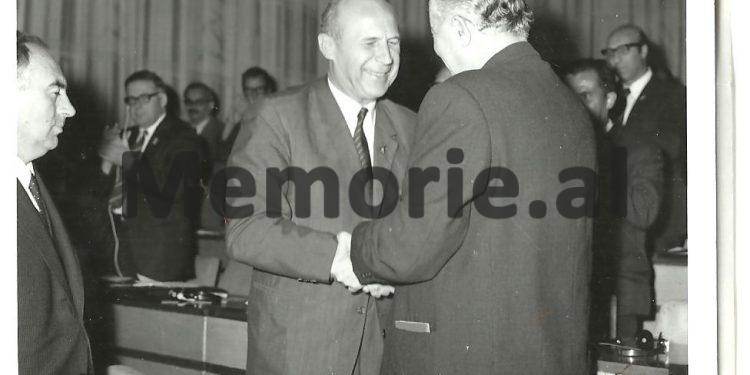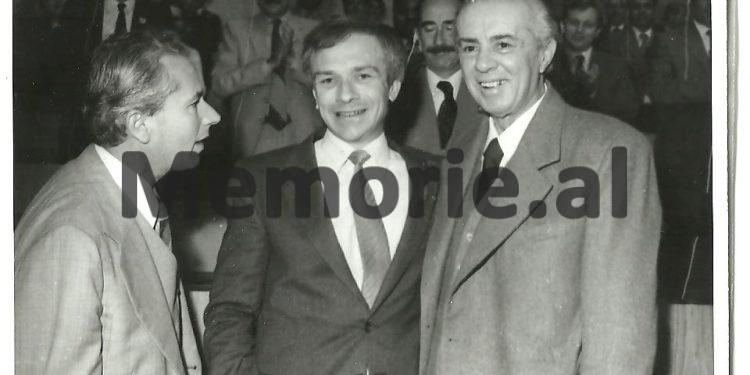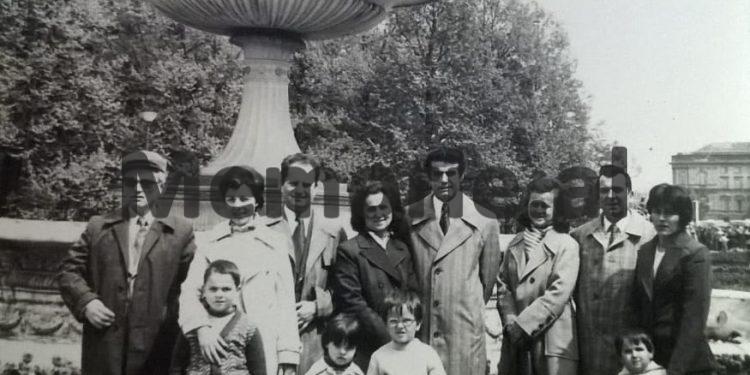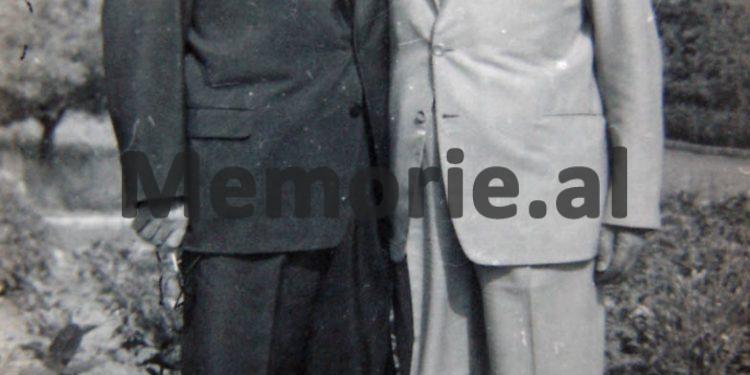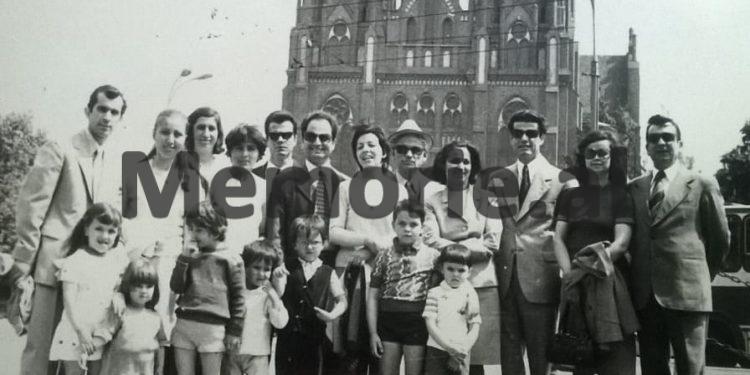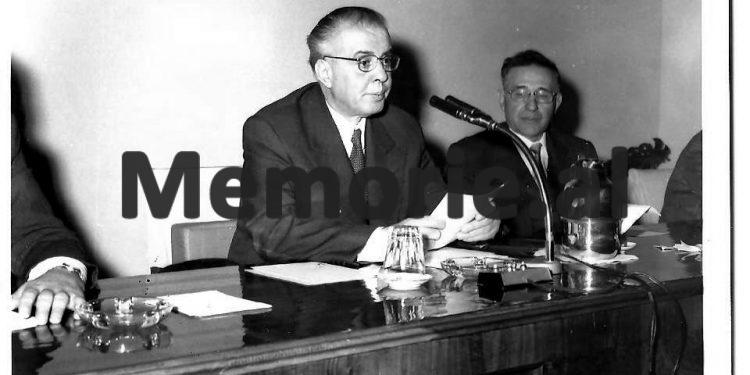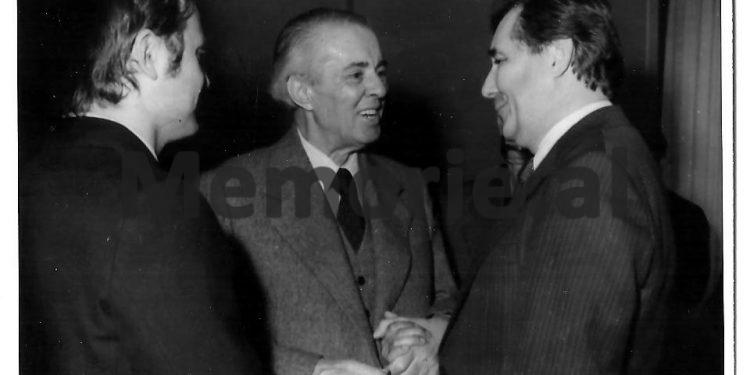Dashnor Kaloçi
Memorie.al publishes the unknown history of relations between official Tirana and Poland after the granting of political asylum in Albania to the chairman of the Communist Party of Poland, Kazimierz Mijal, in 1966, when the Polish side immediately expelled from Warsaw, Albanian Ambassador Koço Prifti, declaring that person “non grata”, and began surveying and tracing the rest of the embassy staff, which lasted until 1978, when the senior leadership of the ALP expelled Mijali from Albania due to his stay. his pro-Chinese politics and the “three worlds” theory. The rare testimony of the former Albanian diplomat who served as the third secretary at the Albanian embassy in Warsaw, Leonard Zissi, regarding the secret mission assigned to him and the other diplomat, Vasil Faber, by Hysni Kapos and Ramiz Alia in 1978 when they were urgently summoned to Tirana, as well as their meeting in a forest outside Warsaw with Hilari Helovsky, one of the top exponents of the Communist Party of Poland.
In the first part of this article published in yesterday’s issue, we were introduced to the interview of the former chairman of the Communist Party of Poland, Kazhimierzh Mijal, given in the Polish magazine “New State”, in 2001, where the 91-year-old who was living in Warsaw at the time, (Mijal dead in 2010 at the age of 100), has testified about his long 12-year adventure of staying in Albania, the treatment given to him in our country, his relationship with Enver Hoxha and the high communist leadership, until his departure from Albania in July 1978, after the divergences he had with them regarding his pro-Chinese stance. Also in another article published three issues ago, through the story of Koci Zengo, the former companion and translator of Kazhimirerzh Mijali, we became more familiar with all the circumstances that forced the leader of the Polish communists to come to Albania. Also, through the story of Koci Zengo, we got acquainted with all the 12-year activity of the Polish chief communist in Albania since the day he came to the Port of Durres through Italy, his connections with the top leadership of the communist state, secret trips outside Albania. meetings with Mao Zedong, the distribution of his books in Poland, his divergences with Enver Hoxha until his expulsion from Albania in July 1978, after seeking political asylum in China, where he took refuge until 1983, when and returned permanently to his homeland in Poland, where he lived until 2010. But were there any consequences to the policy and relations between Poland and Albania, after the granting of Mijal’s political asylum by official Tirana? Leonard Zisi, the former secretary of the Albanian embassy in Warsaw in 1973-1979, testifies to this.
Mr. Zisi, in the interview given by the former Chairman of the Polish Communist Party, Kazhimierzh Mijal, to the Polish magazine “New State”, said that he escaped from Poland with the help of Albanians. What do you know about this?
Yes, this is true. Kazhimierzh Mijal escaped from Poland to Albania in February 1966, is provided with an Albanian diplomatic passport, and as far as I know, this was done with the help of the Albanian embassy in Poland.
Did this action of the Albanian embassy in Poland have consequences in the relations between the two countries?
Mijal’s arrival in Albania by the Polish side was considered an incident and from that time until 1978 when he left Albania, this incident has been like a “black cloud” that always stood over his head. Albanian-Polish relations. In parentheses, shifting slightly in time, in 1961, unlike other Eastern countries that followed the example of the former Soviet Union, withdrawing their ambassadors from Tirana after 1961, due to ideological divergences that had arisen between the Albanian leadership. and Soviet, Poland did not do so, and in 1965 she appointed her ambassador to Tirana. But, immediately after the incident with Mijali, the Polish side expelled our ambassador Koço Prifti from Warsaw, as a “non grata” person, forcing our party to act in the same way, as usually happens in these cases, expelling the ambassador from Tirana as well. Polish, Rogulski, as a “non grata” person. In this way, from 1966 to 1990, state relations between Albania and Poland were at a low level as well as with other eastern countries, which were normalized in 1990.
How committed has the Albanian embassy in Warsaw been to distributing the materials prepared by Mijali in Poland?
First of all, it should be noted that the Albanian side, here I have in mind both party and state bodies, have been aware that the commitment of our embassy in Warsaw in the distribution of materials prepared by Mijali in Tirana, has not been a regular action. in relations between the two countries, and constituted interference in the internal affairs of Poland. For this reason, she insisted on Mijali, that he find other ways of communication for sending materials, in order to avoid our embassy in Warsaw. This is also understood from Mijal’s interview when he says that the materials were sent to Poland by his friends from Austria, Germany, France, and the Scandinavian countries. I do not know how much the Albanian embassy in Warsaw was engaged before 1973, but I can say that: in the period 1973-1978 when I worked in Warsaw, the embassy’s engagement was limited and I think it consisted mainly of correspondence. personal that Mijali kept with his family in Warsaw, and not with the distribution of materials”.
How did the Polish side react to these events?
As Mijali mentions in his interview, the staff of our embassy in Warsaw, as well as the embassy buildings and those of their residence, have been under strict surveillance by the Polish security services. This surveillance was carried out in a long time and in most cases, open and demonstrative. In particular, this surveillance regime was strengthened on the eve of the Polish holidays. All persons entering and leaving our embassy were detained and registered by the Polish security. Such open follow-ups were also made to the delegations coming from Albania to Poland. On one occasion, in December 1974, the Polish police escorted to the police the head of the group of our Ministry of Foreign Trade, who had come to Poland to sign the protocol of the exchange of goods, between the two countries. After checking him and finding nothing compromising, they released him. Our party protested and the Polish side apologized, considering it an incident caused by irresponsible segments of the Polish police.
How was the work of the embassy organized in the distribution of Mijal’s materials?
The contacts held by the staff of our embassy have been very secretive. I was excluded from these contacts, probably also because I was not a member of the party since as I mentioned, these contacts were only in the party line and not in the state one. It was headed by the Foreign Directorate of the Central Committee of the ALP and did not deal with the Albanian state bodies. In 1975, we received a signal from the Chinese embassy in Warsaw that the Polish secret services had tracked down the Albanian embassy’s contacts with Mijal’s supporters and were planning to crack down on the Albanian embassy staff.
What happened after that, was the activity that was done by our embassy stopped?
That forced our party to withdraw some of its personnel to Albania and replace them with other completely new personnel. This was done with the aim of avoiding any incident and worsening relations between the two countries.
What happened after the emergence of the divergences of the top Albanian leadership with Mijali?
The divergences of the ALP with Mijal appeared at a time when the latter was positioned in favor of Chinese politics and attitude in the context of Albanian-Chinese divergences. On this issue, the leadership of the ALP was interested in knowing the position of Mijali. For this reason, in October 1977, they summoned to Tirana the trade adviser of the embassy, my friend, and unforgettable friend, Vasil Faber, as well as me. Hysni Kapo warmly welcomed us at the Central Committee of the ALP and Ramiz Alia met us after him. They instructed us to meet with Hilari Hellhovsky, one of the leaders of the Polish Communist Party, about whom Mijali also talks in his interview, and in the ongoing conversation with him, to learn what his views and those of other comrades on the subject were. with Albanian-Chinese divergences. The message from Hysni Kapo and Ramiz Alia was that in our conversation with the Polish communists, everything should be drawn through the conversation and not through direct questions.
Did you meet with them according to the order given to them in Tirana?
Hellhovsky and I met twice in a forest outside Warsaw, but he was difficult to talk to. He was an old and experienced communist and wanted to impose himself on everything. He had been in Albania in 1952, as part of the Polish Communist Party delegation to the III Congress of the ALP, at a time when state and party relations between the two countries and parties were good. From the meetings he had with the leadership of the ALP, he was convinced that it was sectarian. During the talks, Hellhovski made it clear that he, and the rest of the Polish Communist Party leadership, was in favor of Chinese positions and in favor of the three-world theory, of the cooperation of all forces of all kinds against Soviet social-imperialism, and so on.
After this meeting, what happened to Mijal and the Communist Party of Poland, and also were there any problems in the official relations between Albania and Poland?
The ALP leadership, fully explaining the attitudes of Mijali and his comrades in Poland, decided to sever contact with them and wanted Mijali to leave Albania so that the incident with him would not be a problem and would not be a barrier to state relations between the two countries. Enver Hoxha also talks about this in his book “Notes on China”. But Mijali’s departure from Albania was a problem for our party because the earlier granting of political asylum limited the right of his deportation from Albania. In his interview, Mijali says that the Albanians created a lot of difficulties for him to leave Albania, but I know the opposite. Not wanting to expel him, the Albanian side wanted Mijali to leave Albania of his own free will, but he was reluctant in this regard. This was probably the reason why the Albanian side made it difficult with various measures for Mijal’s stay in Albania, which he talks about in his interview. The dilemmas over this issue may have lasted for about six months, until finally, Mijali, as stated in the interview, sought political asylum in China and left Albania on July 1, 1978.
What happened after Mijali left Albania, was there a change in politics between the two countries?
Upon his departure, the Polish side also removed the direct surveillance direction of the Albanian embassy in Warsaw and its staff, as it had done before.
Who is Leonard Zisi?
Leonard Zissi was born in 1939 in the city of Përmet, where his family originated from. After graduating from high school in Tirana, he won a state scholarship and pursued higher studies at the Warsaw Polytechnic in Poland, in the branch of Railway Transport. After graduating with high results in Poland, he returned to Albania and was appointed a specialist in the General Directorate of Railways in Durrës. He later worked at the Ministry of Communications and as a lecturer at the Faculty of Economics at the University of Tirana. From 1972 to 1983 he worked at the Ministry of Foreign Affairs and from 1973 to 1979, he served as the Third Secretary of the Albanian Embassy in Warsaw. In different periods of time, he also served as a “Charge Affaires” (adinter) at that Embassy. From 1983 to 1992, Leonard Zissi worked as the Head of the Foreign Relations Branch at the Ministry of Transport, and from 1993 to 2003, he worked as a representative of the Gdansk Maritime Repair Center in Tirana. Leonard Zissi is the author and co-author of several texts in the field of Transport Economics, as well as one of the best connoisseurs of Albanian-Polish relations./Memorie.al




